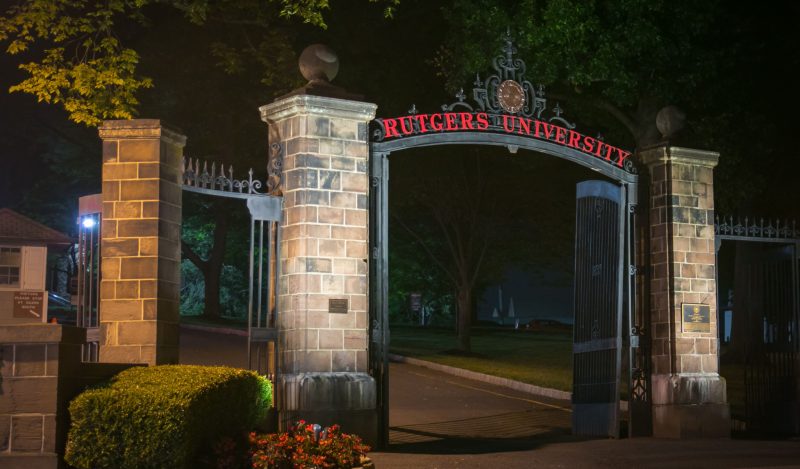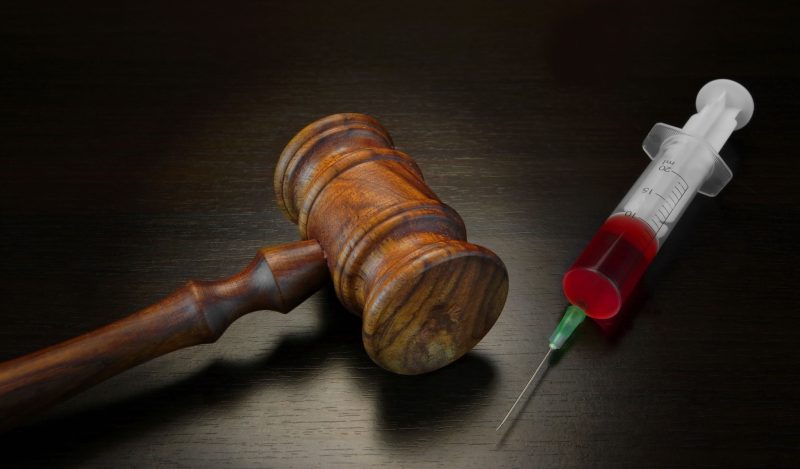On March 25, 2021, Rutgers University became the first university in the nation to announce it would require students to take COVID vaccines for fall 2021 enrollment, retracting its January 8, 2021 announcement that “…with our stance of human liberties and our history of protecting that, the vaccine is not mandatory.” What happened within a few short months that made Rutgers ultimately decide to hell with student civil liberties?
Rutgers claimed and still does to this day that it has a “commitment to health and safety for all members of its community” even though on July 30, 2021, Rochelle Walensky issued a press release claiming that COVID vaccines do not prevent infection or transmission. As if that press release is some figment of our imagination, in January 2022, Rutgers announced a booster mandate with a compliance date set for January 31st, leaving students with few options but to comply to stay enrolled.
As of today, Rutgers remains one of less than 100 universities out of 2,679 four-year colleges and universities that refuse to let go of COVID vaccine mandates, and according to anonymous sources, Rutgers is planning to disenroll non-compliant students beginning on August 15, 2023.
Perhaps this dogmatic adherence to COVID vaccine mandates has been a long time coming. In 2020 and 2021, Rutgers had some of the strictest pandemic lockdown restrictions, even when other colleges were finding ways to resume normalcy. Students quickly fell in line and anyone who questioned the lockdown or mask mandates was denounced as an anti-science MAGA supporter and a grandma killer. A former Rutgers student described her experience as being stuck in a maelstrom of fear, divisive partisanship, and social pressure leading her to self-censor rather than jeopardize relationships or lose standing in her beloved community.
When the vaccine distribution began in early 2021, pandemic fears quickly morphed into anger against anyone who dared to question the vaccine’s necessity, safety, and long-term effects. Dozens of classroom conversations were fueled by vaccine talk. Support for the vaccine mandate was seen as virtuous and altruistic, and anyone who had questions quickly learned to keep their mouths shut or else they were given the dreaded anti-vaxxer label, which begs the question that if it was okay for the CDC to announce that the vaccines were not protecting us from contracting the virus and MSM was reporting on it, why wasn’t Rutgers supporting its students so they could feel safe to talk about it?
Meanwhile, Rutgers insisted to its community members that nobody was forced to get vaccinated since they could request an exemption. What they were not advertising was that exemptions were hard to come by. Religious exemptions were mostly denied. Medical exemptions often took months and multiple appeals to be approved, if ever. While the University did give a 90-day extension on booster compliance based on a recent COVID infection, this extension could only be requested once, and any medical exemption requests based on positive antibody titers from prior COVID infections were denied.
One former Rutgers student described his experience requesting a booster exemption after developing significant cardiac issues. He was told explicitly that antibody titers made no difference. His medical exemption request written by his cardiologist was eventually denied after multiple rounds of back-and-forth. Apparently, the Rutgers Immunization Group, an opaque group of people in charge of handling exemptions, determined this young man’s cardiac issues were not a good enough reason to exempt him from a booster despite emerging data showing COVID vaccines could cause cardiac side effects, especially in young males.
Faculty and staff members at Rutgers arguably had it worse than students as federal Executive Order 14042, signed on September 9, 2021, required that employees of federally contracted entities, including research universities such as Rutgers, be vaccinated against COVID.
On January 4, 2022, Rutgers announced a booster mandate for all community members including employees, even though a booster requirement was not part of the federal mandate. Some employees—all of whom completed primary vaccinations, and most were COVID-recovered—reported that they received threatening notices to comply with the booster mandate stating that “…if you fail to comply with the Executive Order and the University’s requirements, you will be subject to discipline, up to and including termination of employment, but namely termination.”
While the Executive Order provided exemptions for medical or religious reasons, they were also very difficult to attain. As a result, many employees reluctantly complied, and some were forced to resign. The oppressiveness of the employee vaccine mandate also kept many prospective employees from accepting career-changing job offers at Rutgers, despite the administration lamenting about the ongoing labor shortage at the university.
On May 12, 2023, President Biden signed an Executive Order revoking 14042 thereby eliminating Rutgers’ reason for implementing an employee COVID vaccine mandate. Four days later, Rutgers dropped the booster mandate, yet the employee COVID vaccine mandate remains.
Now, in August 2023, months after the federal government announced the end of the public health emergency, Rutgers is one of a small minority of universities steadfastly holding onto COVID vaccine mandates. The pandemic is nowhere near over at Rutgers, not by a long shot.
Published under a Creative Commons Attribution 4.0 International License
For reprints, please set the canonical link back to the original Brownstone Institute Article and Author.









